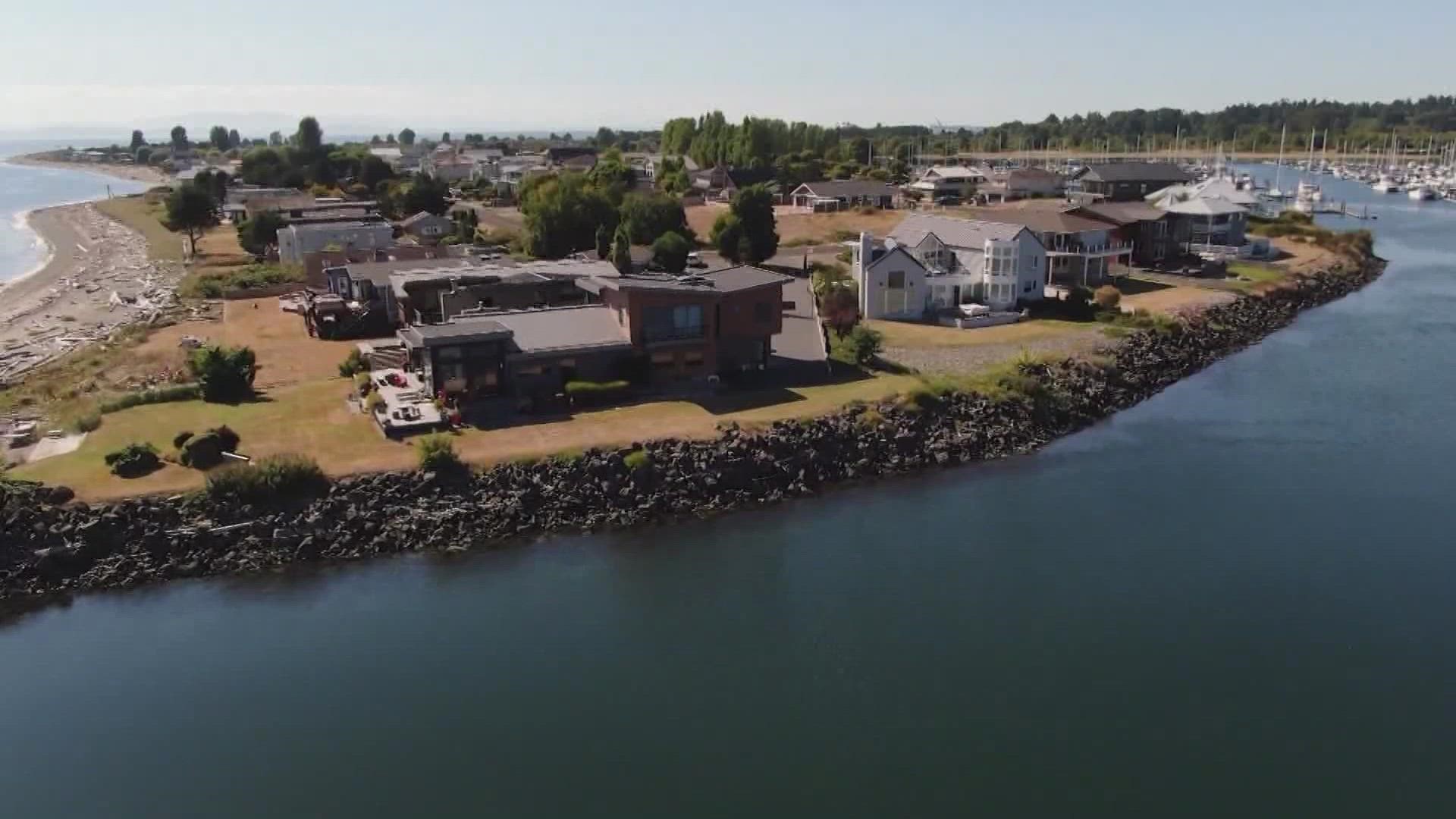POINT ROBERTS, Wash. — The U.S. has lifted restrictions for vaccinated foreign travelers that kept many from entering the country for almost two years.
Beginning Monday, Canadians will have to show proof of vaccination in order to cross the border. The U.S. will not require a negative COVID-19 test like the Canadians, who require a negative test taken no more than 72 hours before entering the country.
People living in Point Roberts, Washington are especially excited to welcome Canadians back, or even home in some cases.
Point Roberts is a small Washington town located on the tip of Canada's Tsawwassen peninsula. It is surrounded by water on three sides and attached to land through Canada only.
When the U.S.-Canadian border closed in 2020, many Canadians were separated from loved ones, friends and their homes in towns like Point Roberts.
"We're going to be thrilled to get our Canadians back because, like I said before, [they own] 75% of our properties and [contribute] 90% of our economy. We just hope that the Canadians will relax that unnecessary testing," said Brian Calder, president of the Point Roberts Chamber of Commerce.
On Monday, some Canadian families returned to the Washington town to winterize their homes.
Maggie Mori and her family live in Canada just 23 miles from Point Roberts, the town where she grew up.
Mori and her family have not been able to visit their cabin as a family since February of 2020. It's the longest Mori has spent away from the peninsula town she grew up in.
"It's like missing a family member to me," said Mori. "You know, I [didn't] know you can miss a place like a loved one, but I truly do."
Calder said he's worried some Canadian families or even visitors won't want to return because of the strict protocols they must follow.
Canadians wanting to get back into Canada will need to test for COVID-19 within 72 hours of returning and provide proof of the COVID-19 vaccine.
It's estimated 85% of the Point Roberts economy relies on business from Canadians. The number of people entering Point Roberts dropped from nearly 1.5 million in 2019 to just 43,000 in 2021, according to the U.S. Department of Transportation.
"Coming out of it, we're going to be in for a long haul economically speaking. We've lost businesses, we've lost employees and we've lost our economy of Canadian people," Calder said.

